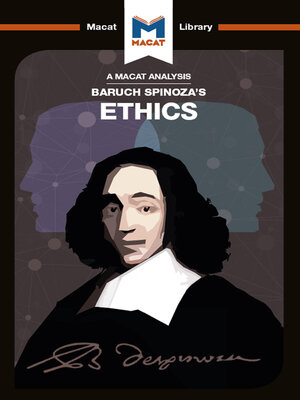
Sign up to save your library
With an OverDrive account, you can save your favorite libraries for at-a-glance information about availability. Find out more about OverDrive accounts.
Find this title in Libby, the library reading app by OverDrive.



Search for a digital library with this title
Title found at these libraries:
| Loading... |
Baruch Spinoza's Ethics is a dense masterpiece of sustained argumentative reasoning. It earned its place as one of the most important and influential books in Western philosophy by virtue of its uncompromisingly direct arguments about the nature of God, the universe, free will, and human morals.
Though it remains one of the densest and most challenging texts in the entire canon of Western philosophy, Ethics is also famous for Spinoza's unique approach to ordering and constructing its arguments. As its full title – Ethics, Demonstrated in Geometrical Order – suggests, Spinoza decided to use the rigorous format of mathematical-style propositions to lay out his arguments, just as the Ancient Greek mathematician Euclid had used geometrical propositions to lay out the basic rules of geometry.
In choosing such a systematic method, Spinoza's masterwork shows the crucial aspects of good reasoning skills being employed at the highest level. The key use of reasoning is the production of an argument that is well-organised, supports its conclusions and proceeds logically towards its end. Just as a mathematician might demonstrate a geometrical proof, Spinoza sought to lay out a comprehensive philosophy for human existence – an attempt that has influenced generations of philosophers since.






